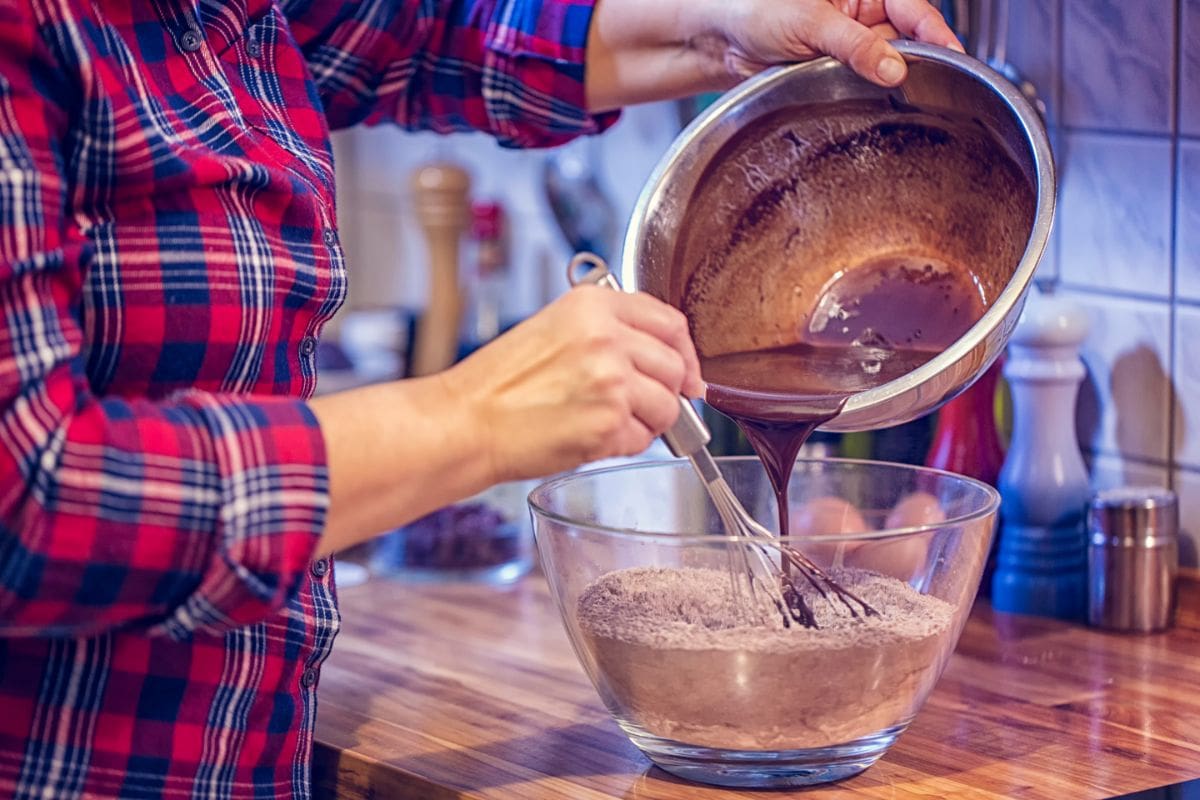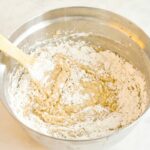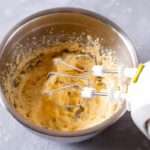Storing cake batter may not be something you do all that often, but knowing how to do so may just make all the difference to your finished cake.
Storing cake batter properly is essential for any avid baker who wants to save time or prepare ahead for special occasions.
Whether you’re looking to store leftover batter from a recent baking project or prepping in advance for an upcoming event, knowing the best ways to store cake batter can decide between a moist and dry cake.
By employing the right techniques and utilizing suitable storage options, you can maintain the freshness and quality of your batter, allowing you to whip up delicious cakes whenever you desire.
While baking your cake batter right away is ideal, there are instances when unexpected circumstances arise, disrupting your baking plans.
The good news is that you can often store the cake batter for future use. Life’s unpredictability shouldn’t discourage you, as proper storage techniques can help preserve the batter’s freshness until you’re ready to bake it.
In today’s guide, we are going to look at the best ways to store cake batter.
We will discuss freezing cake batter, storing in an airtight container, whether room temperature makes much of a difference to the batter, whether refrigerated cake batter is the best storage method, and much more.
So, get that leftover cake batter ready as we unveil the best storing techniques!
Best Ways to Store Cake Batter
Can You Refrigerate Cake Batter?
An effective way to maintain the freshness is to refrigerate cake batter. You’ll be pleased to know that refrigeration can keep your batter in optimal condition until you’re ready to bake.
You can refrigerate cake batter overnight or for up to 48 hours, ensuring it retains its ability to rise. When it’s time to bake, you have two options: bake it straight from the refrigerator or allow the batter to warm up for 30 minutes.
However, it’s important to note that while you can refrigerate cake batter, it won’t completely prevent the loss of air beaten into the batter.
The longer it sits, the more the precious air that gives it height and structure will gradually escape. Therefore, it’s advisable to bake the cake batter sooner rather than later.
Additionally, keep in mind that the effectiveness of your chemical leaveners, such as baking powder or baking soda, may diminish over time, resulting in less rise in the cake.
To prevent the batter’s surface from drying out, make sure to cover it. You can use an airtight container if available, or tightly wrap the cake batter, covered with plastic wrap.
All in all, the longer the batter is stored, the less satisfying the results will be. If the cake batter can not be baked immediately, it’s best to refrigerate it for only a few hours (or overnight) to achieve optimal outcomes.

Can You Freeze Cake Batter?
Using the freezer is an excellent long-term storage solution for various food items, including cake batter. Whether you have cupcake batter or a full cake batter, one of the most convenient options is to store cake batter in the freezer.
When freezing cake batter, place it in an airtight container or a ziplock freezer bag, and store it in the freezer for up to three months.
As long as it is covered with plastic wrap, you can leave cake batter for up to three months. Before using the batter, though, it should be thawed either in the refrigerator or at room temperature.
While freezing is a relatively effective method, it’s important to acknowledge that cake batter is best baked immediately after mixing. Consequently, some challenges may arise along the way.
It’s crucial to note that freezing the batter doesn’t guarantee the same baking and cake mixes results. A freshly baked cake may not rise as much or at all, resulting in a flat and dense texture.
However, the outcome depends on factors such as the cake type (sponge cakes etc.), leavening ingredients used (baking soda or baking powder), duration of storage, and the storage method employed (cake pan, mixing bowl, baking tin, ziplock bag, etc.)
For instance, cake batters with a significant amount of beaten eggs may not fare well in the freezer. The air incorporated during beating is likely to escape, resulting in a denser texture and uncertain rising ability.
On the other hand, cake batter containing oil, typically found in premade mixes, tends to freeze better. The oil, combined with chemical additives in the mix, helps stabilize the batter, prolonging its shelf life.
Alternatively, you can bake the batter, allow the cake to cool, and freeze it in pre-sliced portions for future use. This ensures a satisfactory outcome when you’re in need of a quick cake fix.
How to Freeze Cake Batter
Freezing cake batter can be done using a few different methods, allowing flexibility based on your preference. Here are two recommended approaches:
Freezer Ziplock Bag
Pour the cake batter into thick, airtight freezer bags or containers. Remove excess air and seal tightly. Consider using multiple smaller plastic wrap bags for faster thawing.
Freeze until ready to use, but not too long, as the cake batter may get freezer burn.
Thaw the batter in the fridge until it reaches its original consistency, ensuring even distribution. Open the ziplock bag or cut off a corner to pipe the batter into the cake tray to release air bubbles.
Bake while still cold or at room temperature.
To be extra sure, you can place the plastic wrap containing the cake batter into airtight storage containers.
Cake Tin Freezing
Grease the cake tin, pour in the batter, and tightly wrap it with plastic wrap. Freeze until needed. Thaw by refrigerating for approximately 24 hours or leaving at room temperature for a few hours.
Once completely thawed, bake as usual, allowing for potentially longer baking time if the batter is still cold.
Do Leavening Agents, Like Baking Soda And Baking Powder, Affect How Long You Can Store Cake Batter?
Leavening agents, like baking soda and baking powder, can affect the storage of cake batter. Baking soda reacts with acids to create gas, making the batter rise.
However, over time, baking soda’s effectiveness diminishes, resulting in reduced leavening power.
It’s crucial to bake the cake batter promptly to achieve optimal results. Longer storage may lead to less rise and a denser texture.
Follow recipe instructions, bake batter soon after mixing, and assess the freshness of leavening agents. Also, keep a close eye on how long you leave the cake batter sit.
Short-term storage may still be satisfactory, but for longer periods, it’s best to evaluate the leavening agents’ potency before baking.
In Summary
Cake batter can be stored for up to three months in a freezer or 48 hours in the fridge. Make sure you store your cake batter in a suitable airtight container or in a tin covered in plastic wrap.
That way, it can be ready to use right away when the time comes!










